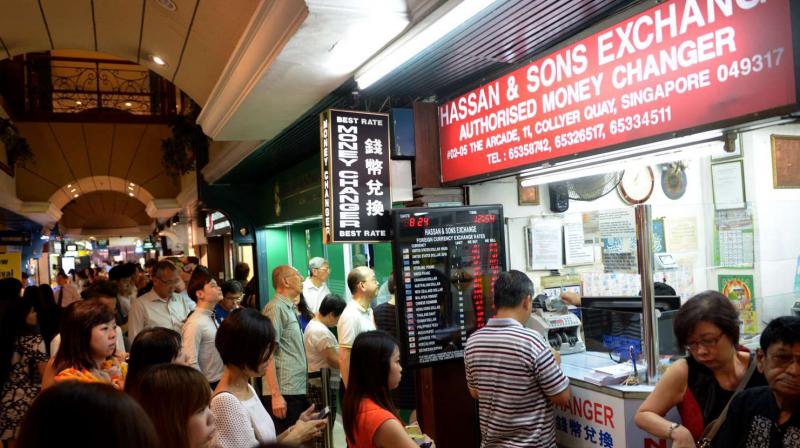Singapore tries again to be FX hub for rich

Singapore: Singapore is grabbing a sub-second opportunity to win a bigger slice of the world's $5.1 trillion-a-day foreign exchange market.
The Southeast Asian nation is encouraging major foreign-exchange players to build systems in the country that would remove the sub-second delay caused by routing trades via Tokyo or London. The move is part of a plan to expand the island's overall currency-trading industry, said Monetary Authority of Singapore's Benny Chey. UBS Group AG and Citigroup Inc have already set up pricing engines on the island and MAS hopes to bring in six to eight more big players, including non-banks and multi-dealer platforms.
"We are positioning ourselves to be plugged in to growing Asian wealth," said Chey, Assistant Managing Director of Development and International at MAS. "As this large macro shift in Asian economic growth and rising Asian wealth takes place over the medium term, we are trying to build out the efficiency of our ecosystem" to close the gaps with other trading hubs, he said.
The government is offering grants and tax incentives to sweeten Singapore's appeal as a hub to trade everything from major currencies to emerging-market offerings, like the yuan.
While Singapore is already Asia's biggest forex trading center by volume, it's still a long way behind the UK and US where investors exchange $2.41 trillion and $1.27 trillion respectively each day. The Southeast Asian nation is hoping to narrow that gap by tapping the region's $22 trillion wealth market, where investors are increasingly drawn to currencies as an alternative to equity and debt markets.
Singapore, famed for its low taxes and open financial services sector, saw average daily currency trading rise to about $529 billion in February, from $416 billion in December 2016, according to MAS data.
The heart of the challenge for Singapore is latency —the 10th of a second extra it takes to route a trading order through servers in Tokyo or London or New York, where most major banks have traditionally sited their trading engines. To capture big-volume players like hedge funds and high-frequency traders, the government needs to persuade companies to build those expensive systems and data centers in Singapore.
— Bloomberg

